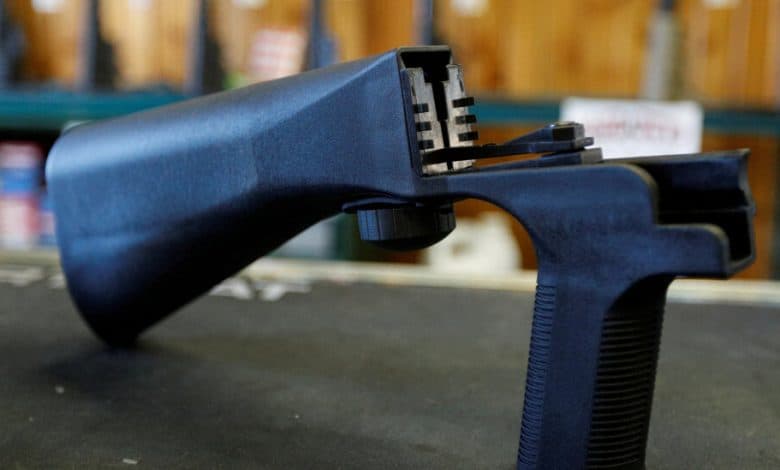Supreme Court Ruling on Bump Stocks Could Open Door to More Lethal Weapons

After a gunman in Las Vegas killed 60 people at a concert in 2017, officials focused on a gun accessory known as a bump stock, a device that allows a rifle to fire at nearly the rate of a machine gun. Bump stocks were banned by the Trump administration after that mass shooting.
But when the Supreme Court last week struck down that ban, which had been a rare victory for gun-safety advocates in recent years, it had the potential to open the door not just to bump stocks. The ruling could also undercut President Biden’s efforts to restrict other gun accessories that give semiautomatic rifles rapid-fire capabilities, lawyers and gun-policy experts on both sides of the gun debate said.
The devices are replacement triggers known as “forced-reset triggers” or “wide-open triggers” that allow shooters to fire more than 900 rounds in a minute with one continuous squeeze, federal officials say.
In March 2022, four years after the ban on bump stocks was issued, the Bureau of Alcohol, Tobacco, Firearms and Explosives also imposed restrictions on some of these trigger devices. The agency said in a letter at the time that the devices effectively turned semiautomatic weapons into prohibited machine guns.
But now, lawyers and experts said that those restrictions could be upended by the Supreme Court’s 6-3 ruling overturning the ban on bump stocks. Immediately after the court issued its ruling on Friday, lawyers for gun-rights groups suing to overturn the trigger restrictions filed a letter citing the bump-stock decision as a new authority that “weighs directly on a central question in this case.”
That question is: What defines a machine gun?
Machine guns are largely illegal, and have long been tightly restricted under federal gun laws stretching back to the 1930s. The federal government has argued that accessories like bump stocks and forced-reset triggers essentially convert semiautomatic rifles into fully automatic ones.